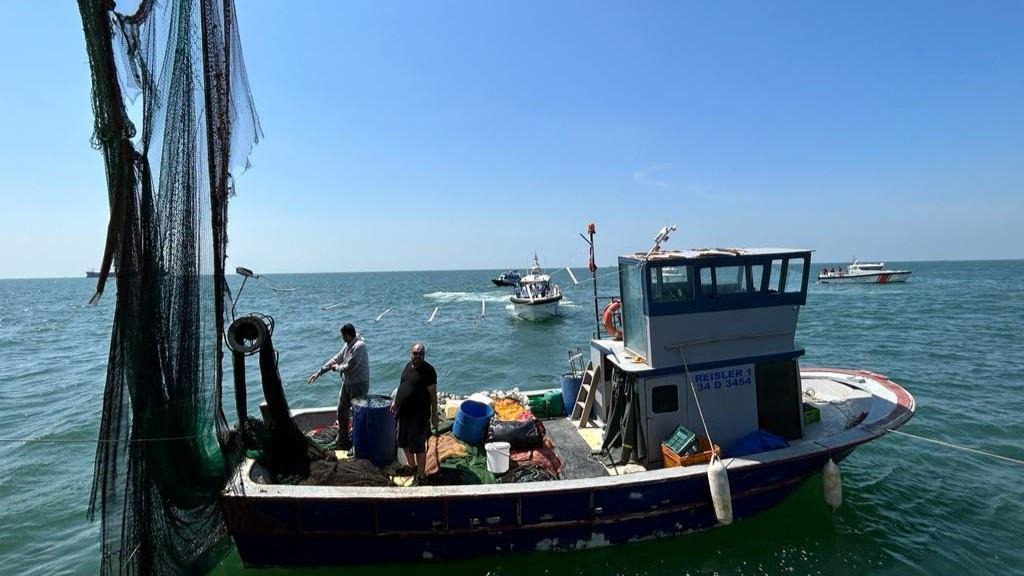
Türkiye, Romania, Bulgaria and Georgia have joined efforts in a new initiative to tackle the rising threat of “ghost nets” — abandoned or lost fishing nets that continue to trap and kill marine life — in the Black Sea.
The project named “BlackNETs - Exorcising the Black Sea's Silent Killers” brings together universities from the four countries in a concerted effort to preserve the region’s marine ecosystem.
The 18-month, EU-funded project is spearheaded by Romania, with Türkiye’s Karadeniz Technical University (KTÜ) Faculty of Marine Sciences serving as a key partner.
The project aims to identify, map and remove approximately 8 tons of ghost nets from the sea, with 480,000 euros allocated for the ambitious initiative.
“These discarded nets pose a grave threat to the marine environment. As long as they remain in the sea, they continue to ensnare and kill fish, sometimes for up to a century. The aim is to save the Black Sea from these abandoned, lost and discarded fishing gear [also called derelict fishing gear],” said Coşkun Erüz, the KTÜ project coordinator.
He highlighted the devastating impact of the nets on the ecosystem, noting that they can stretch hundreds of meters and weigh tons, blanketing the seabed and trapping marine life.
"Fish die when they get caught in these nets, which were originally used for fishing. Abandoned nets in the sea can entangle fish in their gills or trap them as they enter. These discarded nets continue to act as traps and endanger marine life."
The increase in sea temperatures in the eastern Black Sea in recent years has already taken a toll on many species, including anchovies.
The addition of ghost nets exacerbates the problem, further endangering the fish population and threatening the overall health of the marine environment.
Erüz emphasized the project’s collaborative nature, involving not only scientists and academics but also fishermen and relevant institutions. “We will work together to retrieve and recycle these nets, and to prevent new nets from being abandoned. Public awareness campaigns will also be an integral part of our efforts,” he said.
Erüz shared that the initiative includes comprehensive studies to map the locations of ghost nets and explore ways to reuse them in collaboration with the public. "The goal is to reduce pollution in the Black Sea and protect its fragile marine life from these silent killers," he said.